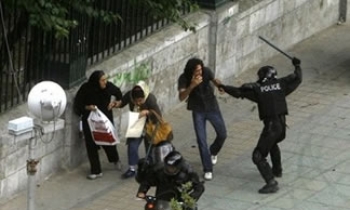ARTICLE 19 has welcomed the bill to decriminalise defamation in the state of Veracruz, Mexico. The approval of the bill on July 22 by the local Congress, actively promoted by ARTICLE 19, significantly advances efforts to persuade the Mexican government to fully decriminalise defamation nationwide, in accordance with Human Rights Committee’s observations.
Mexico is one of the most restrictive and dangerous countries in which to practice journalism. Seventeen out of 32 states continue to carry out sentences of up to four years for anyone convicted of defamation. ARTICLE 19 has recorded several cases in which criminal defamation has been used by both officials and private individuals to hinder journalistic investigations. Moreover, these criminal prosecution for defamation have paved the path for further human rights violations.
“The approval of the bill to decriminalise defamation by consensus is a breakthrough in persuading the Mexican Government to comply with Human Rights Committee recommendations,” said Agnes Callamard, ARTICLE 19 Executive Director. “ARTICLE 19 is calling upon all remaining Mexican states where defamation is still a crime to repeal such laws,” continued Callamard.
In March 2010, the UN Human Rights Committee expressed its concern regarding violence against journalists in Mexico while reviewing the country’s compliance with the International Covenant on Civil and Political Rights. The Committee issued several recommendations to the Government of Mexico pertaining to the right to freedom of expression including a call to fully decriminalise defamation laws throughout the country. Despite reiterated declarations by federal officials, particularly before the Committee during Mexico’s review in March 2010, the Mexican Government has yet to comply with its obligations.
On June 2, 2010, following a consultation with ARTICLE 19 representatives, the local executive branch of Veracruz presented a draft bill to the State Congress. On July 22, the bill, which decriminalises defamation and regulates financial “damages” resulting from its misuse, was approved unanimously by the local congress. It conforms to international human rights standards, as it clearly is in line on forbidding prior censorship, setting limits on “damages” awarded, and insisting public officials prove actual malice when demanding compensation. The bill includes further notable solutions, such as the right to rectification and reply before condemnation.
Criminal defamation is serious interference to the right to freedom of expression and can never be justified. ARTICLE 19 is calling upon all remaining Mexican states where defamation is still a crime to repeal such laws. Civil defamation rules should place the onus on public officials to prove the falsity of allegations of fact, should require public officials to tolerate a greater degree of criticism, and should impose overall limits on damage awards









